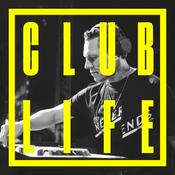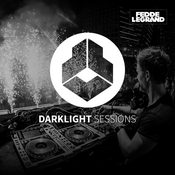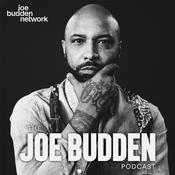562 odcinków
- The Texan prodigy transmits the sound of sci-fi techno in 2026.
What does the future feel like in 2026? In an era dominated by nostalgia and electronic revivalism, even techno—a genre once defined by futurism—has begun to feel stagnant. Enter Gautham Garg, aka Decoder. Raised in Dallas, the 21-year-old offers a refreshed vision of techno for the present moment.
While comparisons to techno stargazers like Mills and Richie Hawtin are inevitable, RA.1023 reveals a broader palette. Microtonal flourishes recall Aleksi Perälä’s Colundi era, while the patient structures lean closer to Perlon-style minimalism than early-2000s severity, with nods to Ricardo Villalobos and Margaret Dygas.
Built largely from unreleased material, RA.1023 captures Garg’s vision of techno for this decade. There’s weight, but it’s more body than bite: elastic, finely tuned drums and a buoyant hypnotism that persists even in rougher moments. Though often labeled sci-fi, Garg’s sound adds layers to cold futurism—instead, optimism shines through. In his hands, techno’s future still feels bright.
Find the Q&A and tracklist at ra.co/podcast/1042
@iamdecoder - The newest XL signing delivers 60 minutes of blistering explorations across the hardcore continuum.
Don't expect KAVARI to take anything too seriously. The Glasgow-based artist thrives on contradiction: a pop-adjacent instinct colliding with a love of discomfort, abrasion and noise.
After years of releasing independently, 2026 marks a new chapter with PLAGUE MUSIC, her debut on XL, out in February. But her instincts remain the same: push harder, strip things back, make it stranger. It comes as little surprise, then, that she's earned the support of fellow mould-breakers like Aphex Twin, Ethel Cain and Hudson Mohawke.
Of her RA Mix she shrugs: "I honestly don't remember making it." That irreverence is audible: disembodied voices mutter club-floor mantras, as she drags grime, drum & bass and dubstep through distortion, friction and collapse.
If that all sounds chaotic, well, that's kind of the point. The aim is to unsettle but o nce you find your footing, RA.1022 reveals itself as genuinely thrilling dance music, far removed from convention. Because nobody gets anywhere interesting without ruffling a few feathers.
Find the tracklist and interview at ra.co/podcast/1041
@kavarimusic - Sensational ambient techno, dub pressure and acoustic visions, sculpted for dreaming and dancing.
In 2023, we called Mariachiara Troianiello one of techno's most exciting producers. And time has only confirmed that statement.
Belonging to a new school of head-spinning artists following in the lineage of Donato Dozzy and Cio D'or, the Turin producer put out her debut EP as Katatonic Silentio, Emotional Gun, in 2019, exploring breakbeat and IDM through a distinctly introspective lens. Since then, her evolution has been striking: from hyperkinetic, post-rave intensity to the sound design-rich tapestries heard on releases for Delsin, Ilian Tape and Mantis.
At first glance, Troianiello's RA Mix ends on an unlikely note: "Technologystolemyvinyle," Moodymann's gloriously disjointed 2007 house cut. But this is a mix best understood in two halves. The opening stretch leans heavily into acoustic, organic sonics before kick drums gradually emerge in the second half. Even at its most stripped back, RA.1021 feels full-bodied: immersive, meditative and transportive.
There's also an unmistakable sense of freedom throughout, the sound of throwing caution to the wind, playing purely on instinct and joy. It's the feeling of being invited into Troianiello's inner world, and revelling in it together. That unguarded spirit defines RA.1021.
Find the tracklist and Q&A at ra.co/podcast/1040 - Stumble into 2026 with the 3XL favourites' uncanny vision of ambient.
It's become a tradition that the first RA Mix of every year eases listeners into January with soft, gentle and unhurried tones. For RA.1020, though, crimeboys take a different approach.
Made up of Ben Bondy, Special Guest DJ and Pontiac Sterator, the US trio are all loosely associated with 3XL. Over the past decade, the Berlin-based label, run by Special Guest DJ, has helped define a strain of ambient that foregrounds strangeness, texture and eccentric detail.
This energy comes through immediately on RA.1020. Listen to the first ten minutes and you might not quite feel soothed. Stick with it, though, and a different logic begins to emerge, as church bells, corroded electronics and industrial abrasion give way to long passages of dub pressure, shadowy rhythm and low-lit propulsion.
Across two hours, the trio draw a map of influences both internal and external to the 3XL universe, from foundational reference points like Skinny Puppy, M.E.S.H. and DJ Krush to artists embedded within the label’s wider orbit, such as Perila, james K and Critical Amnesia. Together, these selections trace a throughline from '90s industrial and jungle into dub techno, experimental club and contemporary ambient's more unsettled edges.
RA.1020 isn't comfort listening in the conventional sense, but it does offer its own form of recalibration and release. Stay put, and you'll be rewarded.
Find the tracklist and interview at ra.co/podcast/1039
@triplexlarge
@benbondy
@pontiacstreator
@specialguest-dj - We close out 2025 with a rare studio mix from the gifted London DJ.
DJing is a craft. It reveals itself over time rather than all at once, and few embody that better than OK Williams. Active since 2019, the London DJ has built a reputation through steady accumulation rather than acceleration, becoming one of the city's most trusted and widely admired selectors in the process.
Williams has never been interested in narrowing her taste into a single calling card, and it's no coincidence that her roots lie at NTS Radio. She learned to DJ at the Hackney station, starting out as a volunteer producer in 2017. Musically, she moves easily between moods—sometimes cheeky, sometimes deep—and tempos, playing everything from 160 BPM jungle and amapiano to baile funk, deep house and dub techno.
For her RA Mix, Williams offers up her "purist" side. Despite her background in radio, Williams doesn't share mixes often and RA.1019 arrives as a relatively rare studio document. Recorded at home on vinyl, the 90-minute session mostly leans into '90s and early '00s techno and prog house.
"Ten years ago I tried learning how to play [vinyl] on a friend's 1210s and gave up after a couple of weeks,"Williams tells us below. "Those same decks were then gifted to me years later and were used to record this mix. It's quite nice to see how far I've come."
In returning to vinyl, and to the decks that once marked a rocky start, Williams' RA Mix arrives as a fitting marker for the year's end. As 2026 approaches and new resolutions begin to crowd the horizon, RA.1019 serves as a welcome reminder that the best things seldom arrive in a hurry.
Find the tracklist and inteview at https://ra.co/podcast/1038
@okwilliams
Więcej Muzyka podcastów
Trendy w podcaście Muzyka
O RA Podcast
Front left since 2001.
Strona internetowa podcastuSłuchaj RA Podcast, PRISMATIC i wielu innych podcastów z całego świata dzięki aplikacji radio.pl

Uzyskaj bezpłatną aplikację radio.pl
- Stacje i podcasty do zakładek
- Strumieniuj przez Wi-Fi lub Bluetooth
- Obsługuje Carplay & Android Auto
- Jeszcze więcej funkcjonalności
Uzyskaj bezpłatną aplikację radio.pl
- Stacje i podcasty do zakładek
- Strumieniuj przez Wi-Fi lub Bluetooth
- Obsługuje Carplay & Android Auto
- Jeszcze więcej funkcjonalności


RA Podcast
Zeskanuj kod,
pobierz aplikację,
zacznij słuchać.
pobierz aplikację,
zacznij słuchać.



































